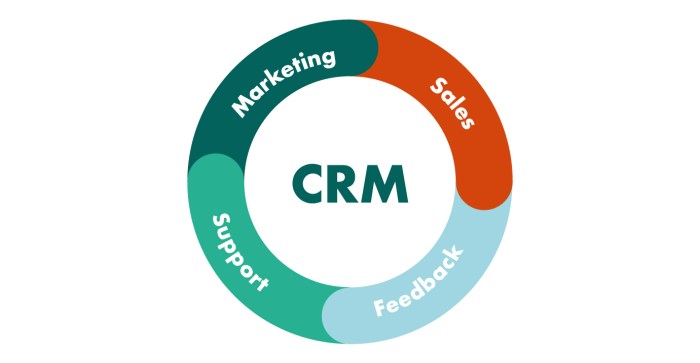Sales Automation CRM
The Power of Sales Automation CRM: Transforming Sales Processes for Success
In the ever-evolving landscape of sales and customer relationship management (CRM), the advent of Sales Automation CRM has revolutionized the way businesses engage with prospects, nurture leads, and drive revenue growth. In this comprehensive guide, we delve into the dynamics of Sales Automation CRM, exploring its functionalities, benefits, implementation strategies, and the transformative impact it wields in empowering sales teams to achieve unparalleled success.
Understanding Sales Automation CRM
Sales Automation CRM represents the convergence of sales processes and automation technology within a centralized CRM platform. It encompasses a wide array of features and functionalities designed to streamline sales workflows, automate repetitive tasks, and optimize sales performance across the entire customer lifecycle.
Unveiling the Benefits of Sales Automation CRM
1. Enhanced Efficiency and Productivity:
Sales Automation CRM eliminates manual, time-consuming tasks such as data entry, lead qualification, and follow-up emails, allowing sales representatives to focus their time and energy on high-value activities such as prospect engagement, relationship building, and closing deals.
2. Improved Lead Management and Nurturing:
With robust lead management capabilities, Sales Automation CRM enables sales teams to capture, prioritize, and nurture leads effectively. Through automated lead scoring, segmentation, and personalized communication workflows, sales representatives can identify qualified leads, tailor outreach efforts, and guide prospects through the sales funnel with precision and relevance.
3. Streamlined Sales Processes:
Sales Automation CRM streamlines the entire sales process, from lead generation to deal closure. By automating repetitive tasks such as pipeline management, quote generation, and contract management, sales teams can accelerate deal cycles, reduce administrative overhead, and drive greater operational efficiency.
4. Data-Driven Insights and Decision-Making:
Sales Automation CRM empowers sales leaders with actionable insights and analytics, providing real-time visibility into sales performance, pipeline health, and revenue projections. Through customizable dashboards, reports, and forecasting tools, sales managers can identify trends, track key metrics, and make data-driven decisions to optimize sales strategies and resource allocation.
5. Enhanced Customer Engagement and Retention:
By leveraging Sales Automation CRM’s integrated communication channels, including email marketing, social media integration, and omnichannel engagement, businesses can deliver personalized, timely interactions that resonate with customers across every touchpoint. This fosters stronger relationships, increases customer satisfaction, and drives long-term loyalty and advocacy.
Exploring Key Features of Sales Automation CRM
1. Lead Capture and Routing:
Automatically capture leads from various sources, such as websites, landing pages, and marketing campaigns, and route them to the appropriate sales representatives based on predefined criteria and territories.
2. Workflow Automation:
Design and automate sales workflows, including lead qualification, opportunity management, task assignment, and follow-up reminders, ensuring that sales representatives adhere to best practices and stay on top of their responsibilities.
3. Email Automation and Sequencing:
Create personalized email sequences and drip campaigns tailored to specific buyer personas and stages of the sales cycle. Schedule and automate email sends, track engagement metrics, and dynamically adjust messaging based on recipient behavior.
4. Contact Management and Segmentation:
Centralize customer data within the CRM system, segment contacts based on demographics, behavior, and engagement history, and tailor communication and marketing efforts to resonate with each segment’s unique needs and preferences.
5. Integration and Customization:
Integrate Sales Automation CRM with other essential business systems, such as marketing automation platforms, ERP systems, and accounting software, to streamline data flow and ensure seamless collaboration across departments. Customize the CRM interface, fields, and workflows to align with unique business requirements and industry-specific workflows.
Implementing Sales Automation CRM: Best Practices
1. Define Clear Objectives and Success Metrics:
Align CRM implementation efforts with strategic business objectives, key performance indicators (KPIs), and revenue targets. Clearly define success metrics and benchmarks to measure the effectiveness and ROI of Sales Automation CRM initiatives.
2. Invest in Training and Change Management:
Provide comprehensive training and ongoing support to sales teams and stakeholders to ensure effective adoption and utilization of Sales Automation CRM. Foster a culture of continuous learning, feedback, and adaptation to maximize the benefits of the CRM platform.
3. Foster Collaboration and Alignment:
Encourage cross-functional collaboration between sales, marketing, and customer service teams to ensure seamless alignment of processes, data, and customer interactions. Leverage Sales Automation CRM as a catalyst for breaking down silos and fostering a unified, customer-centric approach across the organization.
4. Continuously Iterate and Optimize:
Regularly assess and iterate upon Sales Automation CRM workflows, processes, and configurations based on user feedback, performance metrics, and evolving business needs. Embrace a mindset of continuous improvement and innovation to stay ahead of the curve in an ever-changing sales landscape.
In Conclusion
Sales Automation CRM represents a paradigm shift in the way businesses approach sales and customer relationship management. By harnessing the power of automation, data-driven insights, and seamless integration, organizations can unlock new levels of efficiency, productivity, and revenue growth. Whether you’re a small startup or a global enterprise, Sales Automation CRM holds the potential to revolutionize your sales processes and propel your business towards sustained success in today’s competitive marketplace.
